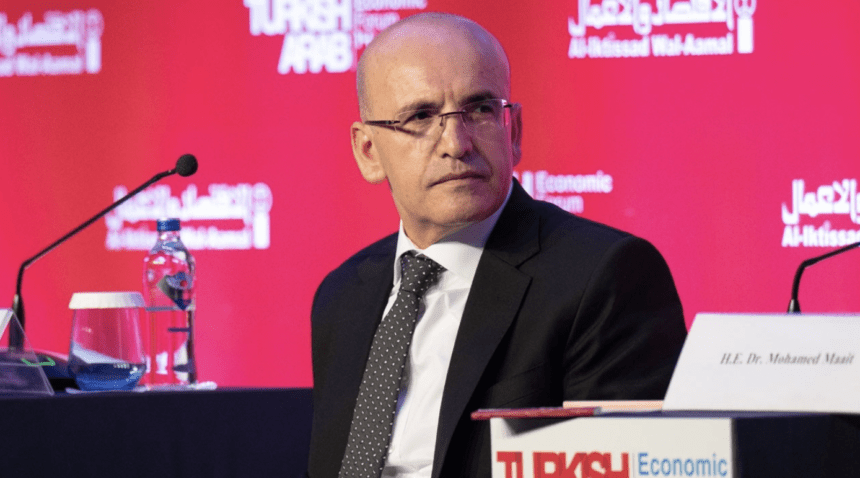Minister of Treasury and Finance Mehmet Şimşek called for regional trade integration amid superpower tensions, speaking at the Turkish-Arab Economic Forum. Simsek pointed out that the competition between the current superpower the USA and the rising power China has led to trade fragmentation, protectionism and geopolitical tensions, and emphasized the importance of more regional integration in this period.
Hosted by the Minister of Treasury and Finance Simsek, with the support of the Ministry of Foreign Affairs and the Presidential Investment Office, and in cooperation with the Union of Chambers and Commodity Exchanges of Turkey, the 14th “Turkish-Arab Economic Forum”, organized this year under the theme “New Era in Cooperation”, started in Istanbul. The panel titled “Overcoming Global Challenges and Seizing New Opportunities” moderated by Minister of Treasury and Finance Simsek within the framework of the Forum was attended by Kuwaiti Deputy Prime Minister for Economy and Investments and Minister of Petroleum Saad Hamed Nasser al-Barak, Egyptian Minister of Finance Mohamed Mouid and Qatari Minister of State and Chairman of the Free Zone Administration Ahmed al-Sayyid.
At the beginning of the event, Minister Simsek commemorated the people who lost their lives in Gaza and stated that the competition between the US and China has caused fragmentation and protectionism in trade and continued as follows: “Global economic tension has become the new normal. At a time like this, regional trade integration seems to be happening faster, but trade integration in our region is the lowest in the world. It will be useful to create a favorable political and regulatory environment. Free trade agreements would be useful, and if we do that, we will have a standard, we will be able to facilitate not only investment but also trade more quickly.” Pointing out the importance of improving regional integration, Minister Şimşek said, “The only way to progress both for the region and for our country is to reform first.”
“Private sector should take the lead”
Kuwaiti Deputy Prime Minister for Economy and Investments and Minister of Petroleum Saad Hamed Nasser al-Barak, in response to the question of what should be done to integrate trade in the region, said: “The flagship of economic development has been free enterprise. Our task is to create the right environment and support free enterprise. The real role of the state is to organize, to enable governance so that businesses can move forward. The economy is in the hands of businesses, economic development happens through free enterprise, this is what we need to do.”
Egyptian Finance Minister Mohamed Mouid said that trade between the countries of the region is very low and the reasons for this should be investigated. “If we give the private sector a leadership and integration role, it will be much better. It is also necessary to ensure that the private sector and the region can move towards certain goals, to help the region to fulfill our goals.” Muid pointed out that the Free Trade Agreement is working very well between Turkey and Egypt, and said that bringing together the right institutions and partnerships will have very fruitful results for increasing trade.
Ahmed al-Sayyid, Qatar’s Minister of State and Chairman of the Free Zone Authority, pointed out that there is a huge potential in the region and said, “The private sector should take the lead here. We need to prepare a clear plan. There are some sectors such as health, agriculture and food, which are basic needs between the countries, and if we start with these and move step by step to more advanced stages, we will achieve a better result.” The panelists also gave information on what is being done in their countries to diversify energy sources.










